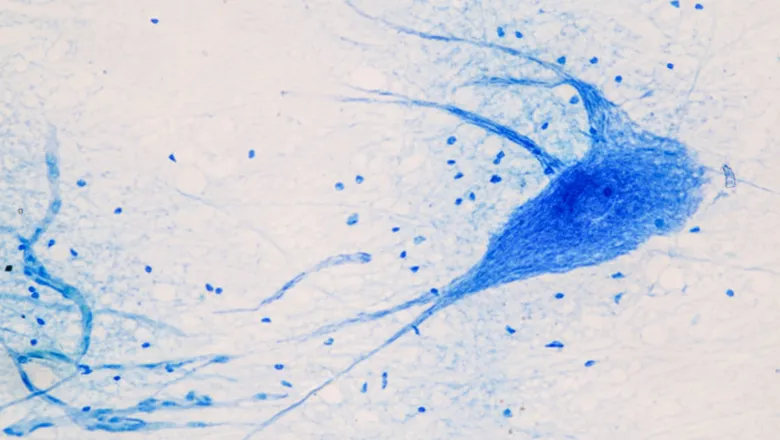The innovative model will allow researchers to study neuromuscular diseases, such as Motor Neuron Disease, closer and may be suitable to screen potential treatments.

Researchers from the Centre for Gene Therapy & Regenerative Medicine at King's College London, in collaboration with colleagues from University College London, have developed the first truly scalable human iPSC-neuromuscular disease model.
Neuromuscular diseases affect the communication between the output layer of the nervous system, a type of nerve cell called motor neuron, and muscle. Such conditions, for example Motor Neuron Disease, result in paralysis, and patients often die within a few years of symptom onset because they lose the ability to breathe.
Many devastating neuromuscular diseases currently lack effective treatments. This is in part due to a lack of drug discovery platforms capable of assessing complex human neuromuscular disease phenotypes in a scalable manner.
The cell culture model the Lieberam and Song groups have developed consists of a synthetic scaffold and human stem cell-derived motor neurons and muscle fibers. This design may be suitable to screen a treatment that can preserve and restore nerve-muscle connectivity.
Previous models have shown the importance of modelling the formation and maintenance of connections with motor neurons, but the scalability of these previous models have been limited by their complex geometries. This new model has already allowed researchers to monitor the formation and maintenance of connections between muscle fibers and motor neurons over a time period of two weeks in the context of Amyotrophic Lateral Sclerosis (ALS).
Demonstrating that a truly scalable human neuromuscular disease model can be created this way will pave the way for future cost-effective pharmaceutical and gene therapy screens aimed at developing new treatments for neuromuscular diseases.
Our findings show that this culture system is a promising platform to study neuromuscular diseases and may be suitable to screen potential therapeutics that preserve and restore nerve-muscle connectivity.
Dr Ivo Lieberam, Senior Lecturer in Developmental Neurobiology







